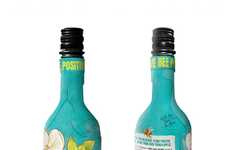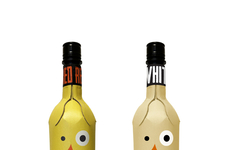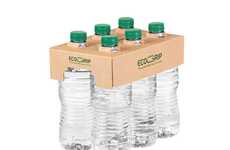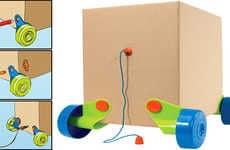
These Cardboard Wine Bottles Take a More Eco-Friendly Design Route
Michael Baxter — April 21, 2014 — Eco
References: paperboywines & psfk
Cardboard seems to be the material of the hour and these cardboard wine bottles are the latest in a long list of products using the versatile material. Paperboy Wines is getting rid of the classic glass that most wine bottles are made of, in favor of the more eco-friendly option, cardboard.
The big pro when it comes to cardboard is that it's recyclable. Paperboy Wines knows this and with a recycle rate of 91%, the world seems to know as well. The eco-friendly pros don't only end at the recyclable aspect though. The fact that the material is lightweight is also a big factor, given the fact that with cardboard the US alone would save $50,793,750 in diesel.
Outside of the functional upside to the material, there's also the fact that the retro design also looks magnificent.
The big pro when it comes to cardboard is that it's recyclable. Paperboy Wines knows this and with a recycle rate of 91%, the world seems to know as well. The eco-friendly pros don't only end at the recyclable aspect though. The fact that the material is lightweight is also a big factor, given the fact that with cardboard the US alone would save $50,793,750 in diesel.
Outside of the functional upside to the material, there's also the fact that the retro design also looks magnificent.
Trend Themes
1. Eco-friendly Packaging - The increasing concern for the environment creates an opportunity for businesses to produce eco-friendly packages using novel materials.
2. Sustainable Wine-making - Wineries are adapting more sustainable practices including using packaging materials that are easier to recycle and require less carbon emissions to produce.
3. Flexible Packaging - Flexible packaging is becoming more popular with the food and beverage industry as it offers lightweight, easy to carry and sustainable alternatives to bulky traditional packaging materials.
Industry Implications
1. Wine and Spirits - Wineries can adopt a safer, more sustainable approach to wine packaging through the use of recyclable alternatives to glass bottles, potentially increasing market appeal and reducing waste.
2. Packaging - Packaging companies can invest in research and development to create new and innovative sustainable packaging alternatives that reduce carbon footprint and improve efficiency in transportation and storage.
3. Retail Industry - Retailers can leverage eco-friendly packaging materials to cater to the needs and values of consumers who prioritize sustainability without compromising functionality, aesthetics and quality of the products.
6.2
Score
Popularity
Activity
Freshness























